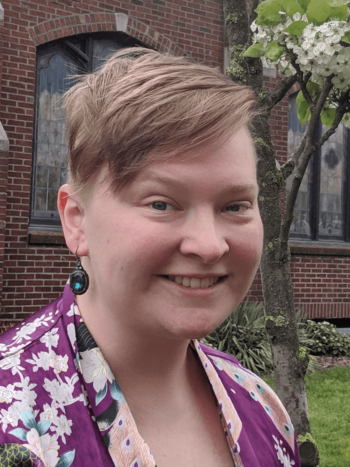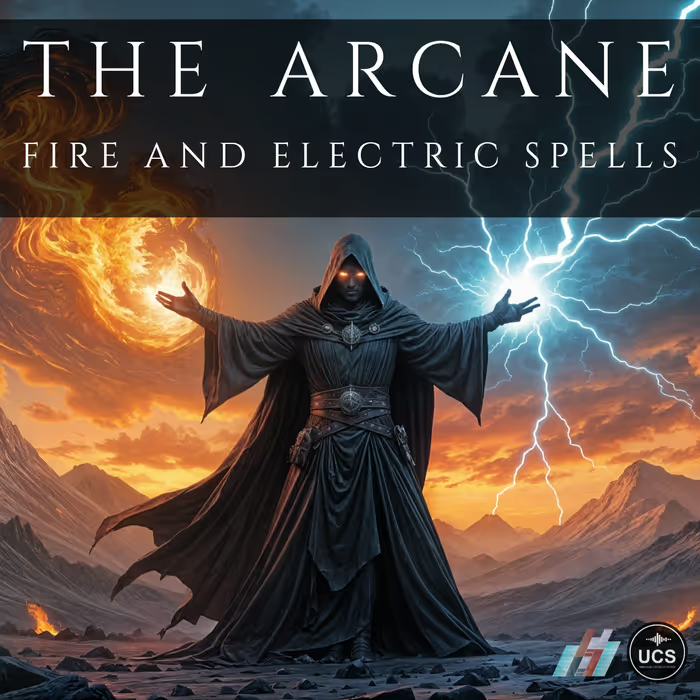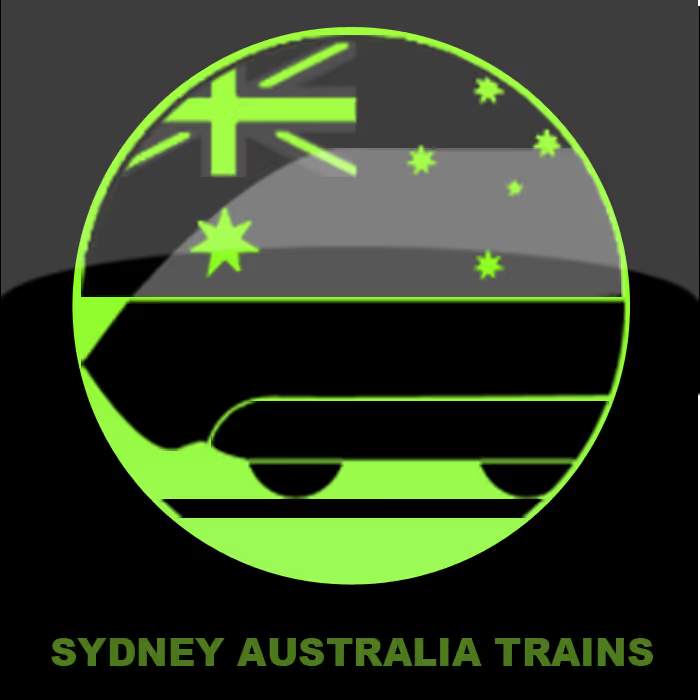The Plan
I’ve heard GDC spoken of as a rite of passage in hushed whispers among sound designers. As if a magical level-up tone plays when you place the shiny badge around your neck and you are suddenly serious. I knew from the beginning that line of thought was a fallacy, akin to the need to have super expensive gear to make great sound. But in the weeks leading up to GDC, I admit to being overwhelmed by how monstrously enormous GDC is. Sifting through the schedule of all the activities, parties, and people, I imagined myself standing on street corners grunting and throwing my business card at random passersby (and I found a nifty card shooter that might do the trick for future GDCs). However, having now been through the rite of passage myself, I realize GDC is more than a long networking event. I came away with a deeper sense of belonging in the audio community as a whole, being more comfortable with myself, and actually being inspired.
As the metallic roar of the BART tore through South San Francisco, I promised myself I would stick to three strategies in order to shape my experience:
1. I would not ask for business cards
2. I would strive to branch outside of my discipline: Audio for Virtual Reality
3. I would always follow spontaneity as chance encounters came up
 I know that a few of you might be surprised at number one on my list, since GDC is one of the largest networking events of the game industry. Since I used to be in sales I know deeply how to “work the room” when going to networking events. One of the skills I have been practicing for over a decade is being able to memorize names, companies and locations of people plus conversation points I’ve had with them, then write them down in my sales journal when I got home. This allowed me to not need anyone’s business card if I wanted to reach out to them at a future date and eventually business cards have become more of a secondary defense against forgetting someone.
I know that a few of you might be surprised at number one on my list, since GDC is one of the largest networking events of the game industry. Since I used to be in sales I know deeply how to “work the room” when going to networking events. One of the skills I have been practicing for over a decade is being able to memorize names, companies and locations of people plus conversation points I’ve had with them, then write them down in my sales journal when I got home. This allowed me to not need anyone’s business card if I wanted to reach out to them at a future date and eventually business cards have become more of a secondary defense against forgetting someone.
One of the drawbacks of being good at this is I tend to get into the “game” of networking where I tend to start evaluating people whether or not I have a short term value add to their business, if I believe can get it, and moving on quickly by closing with “hey, can I get your business card?”. The problem that I was attempting to address was that ending up with lots of contacts wasn’t what I was looking for; I needed to establish authentic and genuine connections. I didn’t know if taking away the easy way to close would help, but I thought it would craft a unique experience.
Genuine connections take time and need to be nurtured.
For example, on Monday afternoon I was chatting with a stranger after being introduced by an acquaintance and I felt the need to move on and start making as many connections as possible. I fought this urge, decided to stay and focused on shifting internally to making a genuine connection. What came out of it was I gained an insight into that person’s business struggles as an indie developer. I also by random chance bumped into this person Thursday evening in the line to the Unparty, where we talked about more personal things like their own experience with burnout in the industry. I realized I needed to slow down if I wanted to make genuine connections with people. Genuine connections take time and need to be nurtured.
An unintended negative consequence of choosing not to ask for business cards actually occurred on Wednesday when I was coming out of the Women and Marginalized Genders Roundtable. The Roundtable itself was an amazing smorgasbord of topics I had never had a chance to talk about or explore in person, and I recommend it to anyone because you will absolutely learn something, no matter your gender. One ally brought up the struggle in finding diversity in good candidates, and that resonated with me since I began my professional career as a headhunter. When I emerged from the Roundtable with a group of people, it would have been natural to thank him, gauge quickly if he wanted to continue the conversation, and ask for his business card. Since I wasn’t asking for business cards, I made a slower transition, and a group of other folks from the Roundtable quickly formed, making that “right time and context” passed. The teachable moment for me is that making connections is all about context. It’s ok to go for a quick close if they are moving on.
Imposter Syndrome
The second very specific choice I made – to branch out from VR Audio – really paid off at the Failure Workshop. I was intrigued by the title because so much of GDC focuses on teams’ well-deserved success, and the more technical overviews I could rewatch in the GDC Vault. In my experience as a sound designer, my failures have often taught me better and more important lessons than my successes, so I thought I’d at least be in good company.
To see someone successful, with courage and dignity, expose the dark side of the creative process was incredibly liberating.
Of the three speakers, Jon Remedios from Actual Humans was whom I resonated the most with. Jon spoke extensively about withdrawing from people, not taking care of himself physically and mentally in the process of developing his game. The moment that actually made me tear up was when he said something to the effect of “when getting to the couch and doing nothing…and that was a good day”. It resonated so deeply with me because I have, and still do, have those days. Those days are the crux of my imposter syndrome; this secret truth that I’m not cut out for this industry, that I’ll never see my dreams come to fruition, and that anything I do that isn’t directly correlated to making money through sound design is utterly worthless. To see someone successful, with courage and dignity, expose the dark side of the creative process was incredibly liberating. I feel like those nasty internalized voices are a bit quieter, and that is a good thing.
While I have touched on the major points of his talk, I wholeheartedly recommend listening to the Failure Workshop if you have GDC Vault access. I never expected to come away resonating with the speakers’ trials, or to have a confirmation of how important self-care is in the process of crafting stories and bringing life and wonder to games. Without the proper self-care, it becomes difficult to be inspired or inspiring to others.
Spontaneity
There was a lot of intention behind my GDC experience, but I actually think the most value came from my third strategy: to embrace spontaneity. I talked to multiple sound designers who had full books at GDC, and it made me nervous because while I had a few options for things to do during the day, I certainly didn’t have anything that couldn’t be dropped in a heartbeat for something more interesting. It was like standing on one leg among all the other flamingos cawing “Am I doing this right?” I’m glad that in this case, I was simply wrong to worry. A packed schedule would have completely taken the fun and wonder for me out of the experience.
For example, I had attended a morning audio Coffee Meetup hosted by Damian Kastbauer at the Sennheiser store, and heard about a meetup that evening called “Day of the Devs.” I didn’t know anything about it, but for whatever gut instinctual reason, I wanted to go. I had originally planned to more of a standard meet-and-greet by Facebook Reality Labs, so I had a backup in case.
Later that day, in the middle of attending an audio talk, I got a text from my best friend’s mom that he was in the hospital. After making sure he was ok and sorting through the logistics of coordinating with my partner to make sure he’d be ok when he got home, I was emotionally drained and just wanted to hang around a familiar face. Fortunately, I bumped into an audio acquaintance, Carlye Nyte from Camoflaj, and I mentioned I didn’t have a ticket but wanted to sneak into “Day of the Devs.” She knew Camden Stoddard from Doublefine who just happened to have a free ticket and connected me. It was in this old timey dine-in theater where they featured the respective indie developers playing their demos on a huge screen. It was an absolute blast!
Self-Care Every bit of my internalized imposter syndrome declared if I wasn’t taking advantage of every moment at GDC I wasn’t ever going to be a successful sound designer.
Every bit of my internalized imposter syndrome declared if I wasn’t taking advantage of every moment at GDC I wasn’t ever going to be a successful sound designer.
The only downside to leaving things “open” was when I didn’t feel well later in the week I found it hard to want to engage with anything. I had left Thursday fairly open to walk the expo floor, leaving chance guide me to fun things. I lost my voice Thursday because I went to a loud party Wednesday night, and ultimately pushing myself too hard Thursday made me truly sick Friday. I found it frustratingly hard to take basic care of myself. After taking a quiet moment for myself (which can be hard to find at GDC), I did manage to play the coolest little game I saw at Day of the Devs earlier that week, Inmost, but overall I pushed myself a bit too hard simply for the sake of “putting myself out there”. Every bit of my internalized imposter syndrome declared if I wasn’t taking advantage of every moment at GDC I wasn’t ever going to be a successful sound designer. I only realize this in reflecting on it afterwards, but it was incredibly difficult to manage my internalized imposter syndrome while not feeling well. The way I have found to keep it at bay is through community.
For example, on Monday, I realized at lunch I had slept poorly and was dehydrated and had to head back to my hotel and sleep, instead of networking or going to the talk I had planned for. I almost wanted to break down and bawl in the middle of the fecal ridden streets of the Tenderloin. My internalized imposter syndrome huffily declared me going to nap was obviously a sign I’d completely wasted all of GDC, which I had gotten on scholarship from the Audio Mentorship Program. I didn’t even have the dignity to waste my own money with frivolous naps!
In order to combat this irritatingly powerful feeling of guilt, I actually messaged a mentor of mine, Matthew Marteinsson, announcing that I was instead going to take a nap than hang out with him. It was almost comical to see him reply with “Nap it up!” and realize that internalized imposter syndrome was completely out of touch with reality. I found out that taking a 90-minute nap was exactly what I needed, and I bounced right back. I felt great reconnecting with Matthew later for dinner, and meeting wonderful new people that evening. I will probably struggle with feeling guilty about taking care of myself throughout my career. But the people I’ve aligned with, the mentors and peers who have lifted me up, that’s something that IS magic.
Life in Game Audio The point of Stephan’s talk was that context is more important than “acoustic perfection” and to bear the user in mind first.
The point of Stephan’s talk was that context is more important than “acoustic perfection” and to bear the user in mind first.
There is a nigh limitless buffet of audio talks at GDC, but there were two I came away inspired by moving forward. The first would be Stephan Schültze’s talk about VR audio. Since my specialization and interest in audio is in a virtual reality context, I was excited to learn a few tips or tricks. What came out of that talk, especially the question segment, was this idea that choosing to use mono, stereo, binaural, or spatialization in the right context of the experience is actually something I need to consider more often in my design process. In the times I’ve worked on experiences, I defaulted to spatializing a lot “because it’s VR. That’s what you do right?” The point of Stephan’s talk was that context is more important than “acoustic perfection” and to bear the user in mind first. While it might seem a simple concept, I feel inspired to bring a wealth of different kinds of sounds appropriate for the application on my next project.
• 44 community tips and insights for making the most of GDC
• The Bohemian Guide to Game Audio GDC 2019
• GDC 2 Electric Boogaloo: Attending my second Game Developers Conference
• The SUPPLEMENTAL Guide to Game Audio GDC 2018
• The Definitive Guide to Game Audio at GDC 2018
• The Grand Guide to Game Audio at GDC 2017
• The Ultimate Guide To Game Audio at GDC 2016
• Are you at GDC ’15? Here are the Game Audio Top Picks from Damian Kastbauer, Jack Menhorn & Frank Bry
The second talk was at CarouselCon by Gwen Guo, co-founder of IMBA Interactive. For the uninitiated, CarouselCon is an informal lunch meetup behind the carousel during GDC (Wednesday-Friday) where people will give short impromptu talks about any topic. Gwen’s talk focused largely on her journey starting the studio and the relationships between the founders being like a “marriage” when undergoing challenges and the feeling of triumph overcoming them. Her most poignant point was when the studio was struggling for money and they got an opportunity to bid a lucrative contract for a casino. One of her co-founders could not justify the studio taking the contract, because someone close to them had destroyed their life through gambling, and they actively work to help their community deal with gambling addiction. She described the contentious screaming fight that they went through, working through the agony of going the ethical route when bills are due. She mentioned how her work and her personal life are mixed and that she could never separate them, and why making work a positive place was so essential.
Experimenting with the idea that with the passion and life I bring to my work, it becomes almost odd to separate personal from professional. It’s all my life!
This idea of work and my personal life being mixed has been something I have been processing from the beginning of choosing to become a sound designer. In my previous career I had a very divided life; my work persona was very different from who I was as a person. I was actively ridiculed for being a gamer while in sales, which led to this odd double-life between work and home. While I do feel comfortable now talking about being a gamer in professional circles, I still largely only lurk on social media, and if I do emerge to contribute, it’s in a very professional way. Gwen’s talk seemed to hint that experimenting with the idea that with the passion and life I bring to my work, it becomes almost odd to separate personal from professional. It’s all my life!
A big thanks to Megan Frazier for sharing her experience and insight gained at GDC! Learn more about Megan and her work here, and meet her on Twitter here







